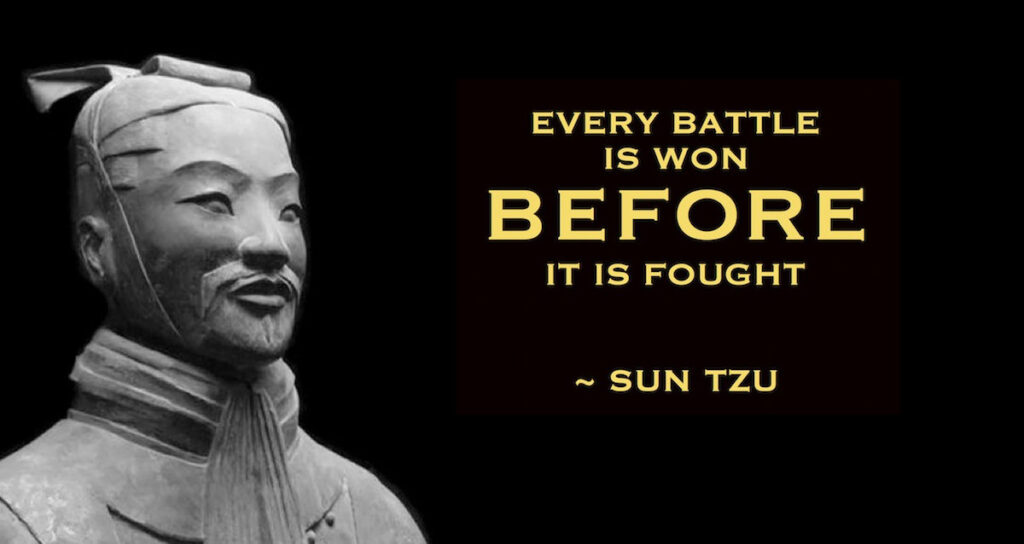"Who Won Battle On The" refers to battles that have taken place throughout history, with varying outcomes and significance.
Battles have played a crucial role in shaping the course of history, determining the rise and fall of empires, and influencing political, social, and cultural landscapes. Understanding who won these battles provides insights into military strategies, technological advancements, and the leadership qualities of commanders.
The outcome of battles has had a profound impact on the development of civilizations, the establishment of borders, and the distribution of power.
- Unveiling The Extraordinary Legacy Of Barbara Bush Discoveries And Insights
- Unveiling Tino Kleins Age A Journey Of Curiosity And Discovery
- Discover The Extraordinary Journey Of Mitch Vogel Uncovering Hidden Insights
- Unveiling The Legacy Of Lynne Badgley Discoveries And Insights
- Unveiling The Digital Legacy Of Alvin Martin A Journey Of Innovation And Open Source
Who Won Battle On The
Understanding who won battles throughout history provides valuable insights into military strategies, technological advancements, and leadership qualities. Here are eight key aspects to consider when exploring this topic:
- Battle strategies: The tactics and formations employed by opposing forces.
- Technological advancements: The weapons, armor, and siege equipment used in battle.
- Leadership: The qualities and decisions of military commanders.
- Terrain: The geographical features of the battlefield.
- Logistics: The supply lines, reinforcements, and medical care available to each side.
- Motivation: The reasons why soldiers fought and the impact on morale.
- Alliances and diplomacy: The role of alliances and diplomatic negotiations in shaping battle outcomes.
- Aftermath: The consequences of battles, including political, social, and economic changes.
These aspects are interconnected and have played a significant role in determining the outcome of battles throughout history. By examining these factors, we can gain a deeper understanding of the complexities of warfare and its impact on the course of human events.
Battle strategies
Battle strategies encompass the tactics and formations employed by opposing forces, playing a pivotal role in determining the outcome of battles throughout history. Commanders must carefully consider the strengths and weaknesses of their own troops, as well as those of the enemy, when devising a battle plan. Factors such as troop morale, terrain, weather conditions, and available resources must all be taken into account.
- Unveiling Ashley Force Drag Racings Trailblazing Pioneer
- Unveiling Mimi Rogers Uncover Hidden Gems
- Unveiling The Secrets Of Carlos Los Parras A Journey Of Discovery And Insight
- Unlocking The Secrets Of Stephen Marleys Marital Status
- Unveiling The Sisterhood Ellen Pompeo And Maureen Pompeos Unbreakable Bond
Effective battle strategies have often involved innovative tactics and formations. For instance, the Greek phalanx, a tightly packed formation of hoplites with interlocking shields and long spears, proved highly effective against the Persian infantry during the Greco-Persian Wars. Similarly, the Roman legions, with their disciplined formations and emphasis on close combat, triumphed over numerous enemies in their campaigns across Europe and North Africa.
Understanding the connection between battle strategies and who won battle on the battlefield provides valuable insights into the art of warfare. By studying historical battles and analyzing the strategies employed by victorious commanders, we can gain a deeper appreciation for the complexities of military tactics and their impact on the course of history.
Technological advancements
Technological advancements have profoundly influenced the outcome of battles throughout history. The weapons, armor, and siege equipment employed by opposing forces have often played a decisive role in determining who emerged victorious on the battlefield.
- Weapons: The development of new and more powerful weapons has consistently impacted the course of warfare. For instance, the introduction of gunpowder revolutionized combat, leading to the widespread adoption of firearms and artillery. These weapons had a devastating impact on traditional armor and fortifications, giving rise to new tactics and strategies.
- Armor: Advances in armor technology have also played a significant role in shaping battle outcomes. From the bronze armor of ancient Greece to the plate armor of medieval knights, armor has provided soldiers with protection against enemy weapons. Improvements in armor design and materials have often given one side a clear advantage in combat.
- Siege equipment: The development of sophisticated siege equipment has enabled armies to overcome formidable fortifications and capture strategic strongholds. From ancient battering rams and siege towers to modern artillery and siege engines, these machines have played a crucial role in determining who won battles and conquered territories.
- Technological innovation: Beyond specific weapons and equipment, technological innovation has also had a broader impact on warfare. The invention of gunpowder, for example, not only led to new weapons but also revolutionized military tactics, logistics, and fortifications. Similarly, the development of radio communications and radar during World War II transformed the way armies coordinated and conducted operations.
In conclusion, technological advancements have been a driving force in shaping the outcomes of battles throughout history. The weapons, armor, and siege equipment employed by opposing forces have played a pivotal role in determining who emerged victorious on the battlefield.
Leadership
Military leadership plays a pivotal role in determining the outcome of battles throughout history. Effective leaders possess a combination of qualities and make sound decisions that inspire their troops and give them an edge on the battlefield.
- Strategic Vision: Great military leaders have a clear understanding of the strategic objectives and the ability to develop and execute plans that align with those objectives. They can anticipate enemy moves and adapt their strategies accordingly.
- Tactical Proficiency: Military leaders must be proficient in the art of war, with a deep understanding of tactics and formations. They must be able to make quick decisions in the heat of battle and adapt their plans to changing circumstances.
- Motivational Skills: Effective leaders can inspire their troops to fight valiantly, even in the face of adversity. They build strong bonds with their soldiers and create a sense of camaraderie and purpose.
- Decision-Making: Military leaders must be able to make quick and decisive decisions, often with limited information and under intense pressure. Their decisions can have a profound impact on the outcome of battles.
In conclusion, leadership is a critical factor in determining who won battle on the battlefield. Effective military leaders possess a combination of strategic vision, tactical proficiency, motivational skills, and decision-making abilities that enable them to inspire their troops and achieve victory.
Terrain
The geographical features of the battlefield, or terrain, play a crucial role in determining who won battle on the battlefield throughout history. Terrain can influence troop movements, provide advantages or disadvantages for defense or offense, and even impact morale.
For example, at the Battle of Thermopylae in 480 BC, the Persian army under Xerxes I was unable to defeat the vastly outnumbered Greek forces led by King Leonidas I due to the narrow pass terrain, which prevented the Persians from using their superior numbers and cavalry to their advantage.
Similarly, at the Battle of Agincourt in 1415, the English army under King Henry V was able to defeat the larger French army due to the muddy terrain, which slowed down the French cavalry and made them vulnerable to the English archers.
Understanding the terrain and its potential impact on troop movements and combat effectiveness is essential for military commanders in developing their battle plans and strategies.
In conclusion, terrain is a critical factor that can influence the outcome of battles. By understanding the geographical features of the battlefield, military commanders can gain an advantage and increase their chances of victory.
Logistics
Logistics, encompassing supply lines, reinforcements, and medical care, plays a pivotal role in determining who won battle on the battlefield throughout history. Effective logistics enable armies to sustain themselves, maintain combat effectiveness, and respond to changing circumstances.
- Supply lines: Maintaining a steady flow of supplies, including food, ammunition, and equipment, is crucial for military operations. Armies that can secure and protect their supply lines have a significant advantage over those facing shortages.
- Reinforcements: The ability to bring in fresh troops and replenish losses can be decisive in protracted battles. Armies with access to reserves or reinforcements can sustain their offensive or defensive operations for longer periods.
- Medical care: Providing adequate medical care to wounded soldiers can boost morale and combat effectiveness. Armies with well-organized medical services can reduce casualties and ensure that soldiers can return to combat.
Logistics is often overlooked, but it can be just as important as military strategy and tactics. By understanding the challenges and opportunities of logistics, military commanders can increase their chances of victory on the battlefield.
Motivation
Motivation is a crucial factor in determining who won battle on the battlefield throughout history. Soldiers who are motivated to fight hard and make sacrifices are more likely to achieve victory than those who are demoralized or lacking in purpose.
There are many reasons why soldiers fight, including patriotism, loyalty to their comrades, and the desire to defend their homeland or beliefs. Whatever the reason, motivation can have a profound impact on a soldier's performance in battle.
For example, at the Battle of Thermopylae in 480 BC, the vastly outnumbered Greek forces were able to hold off the Persian army for three days due in part to their high morale and determination to defend their homeland.
Similarly, at the Battle of Agincourt in 1415, the English army was able to defeat the larger French army due to their superior motivation and .
In modern warfare, motivation continues to play a vital role. For example, the success of the Ukrainian resistance against the Russian invasion in 2022 can be attributed in part to the high morale and motivation of the Ukrainian soldiers.
Understanding the importance of motivation and its impact on morale can help military commanders develop strategies to keep their troops motivated and . This can be done through a variety of means, such as providing clear and achievable goals, recognizing and rewarding success, and creating a sense of camaraderie and purpose among the troops.
By understanding the connection between motivation and morale, military commanders can increase their chances of victory on the battlefield.
Alliances and diplomacy
Alliances and diplomacy have played a significant role in determining who won battle on the battlefield throughout history. By forming alliances with other states or powers, nations can increase their military strength, gain access to resources, and improve their strategic position. Diplomatic negotiations can also be used to resolve conflicts peacefully, avoiding the need for war or to secure favorable terms in the event of a conflict.
For example, during the Second World War, the Allies (primarily the United States, the United Kingdom, and the Soviet Union) formed a powerful alliance that ultimately defeated the Axis powers (primarily Germany, Japan, and Italy). The Allies were able to combine their resources, coordinate their military operations, and develop new strategies to counter the Axis threat. This alliance was a major factor in the Allied victory.
In contrast, the lack of strong alliances and effective diplomacy can lead to defeat. For example, in the First World War, the Ottoman Empire was allied with Germany and Austria-Hungary, but these alliances were not strong enough to prevent the Ottoman Empire from being defeated by the Allied powers. This was due in part to the fact that the Ottoman Empire was not able to secure the support of other major powers, such as the United States or Russia.
Understanding the importance of alliances and diplomacy can help military commanders and policymakers develop strategies to increase their chances of victory. By building strong alliances and engaging in effective diplomacy, nations can improve their security and position themselves for success in the event of conflict.
Aftermath
Battles have far-reaching consequences that extend beyond the immediate victors and vanquished. The aftermath of battles can bring about significant political, social, and economic changes that shape the course of history.
- Political changes: Battles can lead to changes in political power, borders, and governments. For example, the outcome of World War II led to the downfall of the Axis powers and the redrawing of the political map of Europe.
- Social changes: Battles can also have a profound impact on societies. They can lead to changes in social structures, values, and demographics. For example, the American Civil War led to the abolition of slavery and the beginning of a new era of racial equality.
- Economic changes: Battles can also have a significant impact on economies. They can lead to the destruction of infrastructure, the disruption of trade, and the loss of life, all of which can have a negative impact on economic growth and development.
Understanding the aftermath of battles is essential for understanding the full impact of warfare. By considering the political, social, and economic consequences of battles, we can better appreciate the challenges and opportunities that arise in the wake of conflict.
Frequently Asked Questions about "Who Won Battle On The"
This section addresses common questions and misconceptions surrounding the topic of "Who Won Battle On The" to provide a comprehensive understanding of its significance and implications.
Question 1: What factors determine the outcome of battles?
The outcome of battles is influenced by a multitude of factors, including military strategies, technological advancements, leadership, terrain, logistics, motivation, alliances and diplomacy, and the aftermath.
Question 2: How do military strategies impact battle outcomes?
Effective military strategies involve utilizing tactics and formations that capitalize on the strengths of one's own troops while exploiting the weaknesses of the enemy, considering factors such as troop morale, terrain, weather conditions, and available resources.
Question 3: What is the role of technological advancements in battles?
Technological advancements, particularly in weapons, armor, and siege equipment, have significantly influenced the course of warfare, giving advantages to those with access to superior technology and innovation.
Question 4: How does leadership influence battle outcomes?
Effective military leadership involves strategic vision, tactical proficiency, motivational skills, and decision-making abilities, enabling commanders to inspire their troops, adapt to changing circumstances, and achieve victory.
Question 5: Why is terrain important in battles?
Terrain, or the geographical features of the battlefield, can influence troop movements, provide advantages or disadvantages for defense or offense, and even impact morale, affecting the overall outcome of battles.
Question 6: How do logistics affect battle outcomes?
Logistics, encompassing the management of supply lines, reinforcements, and medical care, is crucial for sustaining combat effectiveness and responding to changing circumstances, giving an edge to armies that can secure and maintain their logistical needs.
In conclusion, understanding the complexities of "Who Won Battle On The" requires considering the interplay of various factors that shape the dynamics and outcomes of battles throughout history.
Transition to the next article section:
Tips on Understanding "Who Won Battle On The"
To gain a comprehensive understanding of "Who Won Battle On The," consider these insightful tips:
Tip 1: Analyze Battle Strategies
Examine the tactics and formations employed by opposing forces. Consider how these strategies align with troop strengths, terrain, and available resources.
Tip 2: Evaluate Technological Advancements
Assess the impact of weapons, armor, and siege equipment on battle outcomes. Technological innovations can provide significant advantages.
Tip 3: Study Military Leadership
Understand the role of strategic vision, tactical proficiency, motivation, and decision-making in military leadership. Effective leaders inspire troops and make sound judgments.
Tip 4: Consider Terrain and Logistics
Analyze the geographical features of the battlefield and their impact on troop movements, defense, and offense. Additionally, assess the importance of supply lines, reinforcements, and medical care.
Tip 5: Examine Alliances and Diplomacy
Evaluate the role of alliances and diplomatic negotiations in shaping battle outcomes. Alliances can increase military strength, while diplomacy can resolve conflicts or secure favorable terms.
Tip 6: Understand the Aftermath
Consider the political, social, and economic consequences of battles. These outcomes can reshape power structures, societal values, and economic landscapes.
Tip 7: Consult Historical Sources
Refer to historical accounts, documents, and artifacts to gain insights into specific battles and their outcomes. Primary and secondary sources provide valuable perspectives.
Tip 8: Seek Expert Opinions
Engage with historians, military experts, and scholars to broaden your understanding of battle strategies, leadership, and the impact of warfare.
By following these tips, you will gain a deeper understanding of the factors that influence who won battles throughout history and the broader implications of these outcomes.
Transition to the article's conclusion:
Conclusion
In exploring "Who Won Battle On The," we have delved into the intricate factors that shape the outcomes of battles throughout history. From military strategies and technological advancements to leadership, terrain, logistics, motivation, alliances, and the aftermath, each element plays a vital role in determining the victor.
Understanding these factors allows us to appreciate the complexities of warfare and its profound impact on the course of human events. By studying battles and their outcomes, we gain insights into the art of war, the qualities of effective leadership, and the enduring legacy of armed conflict.
Related Resources:



Detail Author:
- Name : Wade Shields
- Username : maggio.evie
- Email : sanderson@quigley.org
- Birthdate : 2003-10-01
- Address : 5215 Okuneva Canyon Uptonland, WA 21969
- Phone : +1.423.572.8856
- Company : Keebler PLC
- Job : Set Designer
- Bio : Eum voluptatibus voluptatibus quia. Nihil occaecati impedit natus est quia officia. Velit totam reiciendis itaque autem animi. Ad vero veniam sit sed dolorem est.
Socials
tiktok:
- url : https://tiktok.com/@wturner
- username : wturner
- bio : Ea ut quaerat tempore est. Quia voluptas illum quas ut eum.
- followers : 3340
- following : 1135
instagram:
- url : https://instagram.com/weldon_xx
- username : weldon_xx
- bio : Qui aut aut rem voluptate recusandae est. Labore veniam ea ut perferendis. Dolore aut quae ea et.
- followers : 2258
- following : 2018
linkedin:
- url : https://linkedin.com/in/weldon_turner
- username : weldon_turner
- bio : Animi et commodi iste.
- followers : 4867
- following : 1174
facebook:
- url : https://facebook.com/wturner
- username : wturner
- bio : Impedit expedita corporis tempora corrupti debitis.
- followers : 5859
- following : 2527